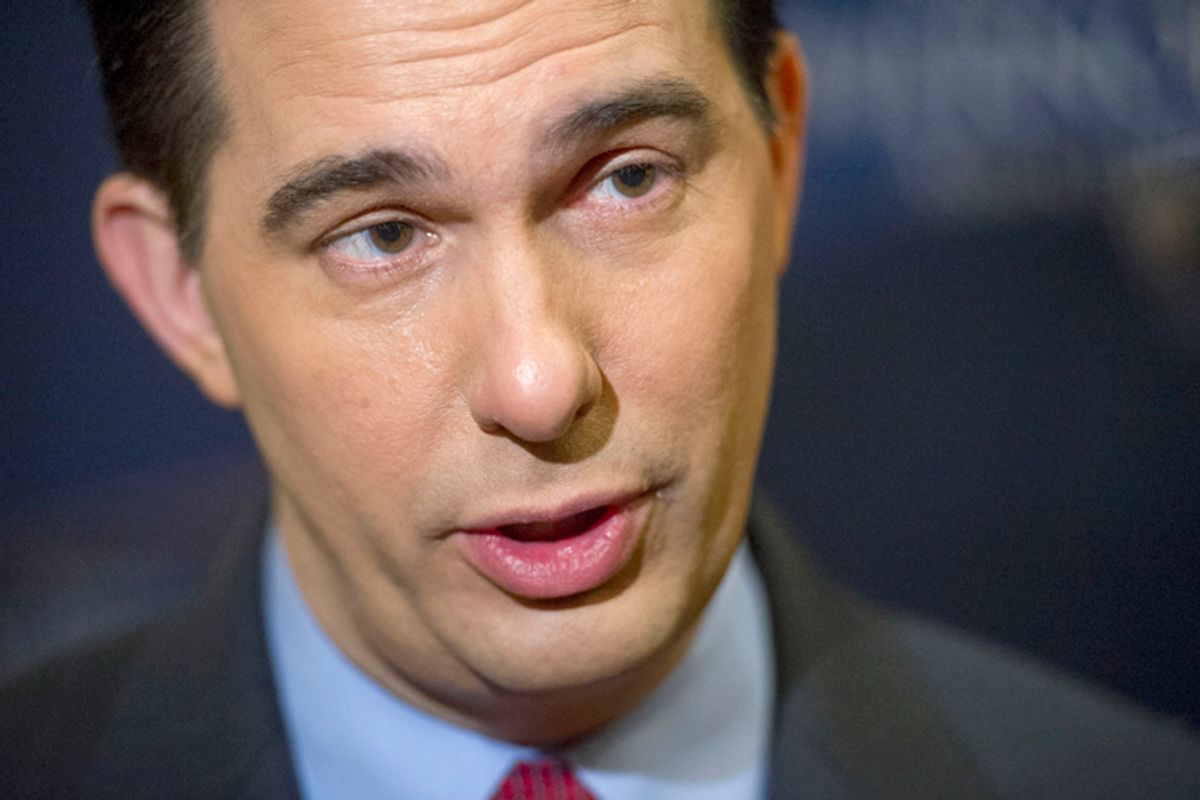Wisconsin Gov. Scott Walker has rejected a labor group’s effort to increase the state’s $7.25 an hour minimum wage.
The Milwaukee Journal-Sentinel reports that a coalition led by the group Wisconsin Jobs Now had seized on a provision in Wisconsin law which states that the minimum wage must be a “living wage” – defined as “reasonable comfort, reasonable physical well-being, decency and moral well-being." However, the Journal-Sentinel noted, state law also allows governors to weigh such factors as the wage’s impact on the labor market. (Studies show that state increases in the minimum wage don’t harm job growth.)
Citing the living wage provision, the coalition last month urged the Walker administration’s labor department to raise the state’s minimum wage. In rebuffing the effort, the Walker administration isn’t just citing the other factors a governor is allowed to consider – it’s actually asserting that $7.25 an hour is a living wage.
Responding to the coalition’s effort in a letter Monday, Robert Rodriguez of the Department of Workforce Development wrote, “The department has determined that there is no reasonable cause to believe that the wages paid to the complainants are not a living wage.”
As ThinkProgress’ Bryce Covert notes, an MIT study has found that a living wage for a single parent in Madison, Wisconsin would be $21.17 per hour.
An individual working full time at $7.25 an hour – which has been the federal minimum wage since 2009 – earns $15,080 per year, just enough to keep an individual above the $11,490 federal poverty threshold for a single person. For a four-person family, the poverty level is $23,350.
The typical minimum wage worker, according to the Economic Policy Institute, “is in her early thirties, works full-time, and may have a family to support.” According to the University of Wisconsin’s Center on Wisconsin Strategy, if the minimum wage were raised to just $10.10, 57 percent of Wisconsin workers affected would be women, and 87 percent would be age 20 or older. Walker's Democratic opponent, Mary Burke, supports raising the state's minimum wage to $10.10 an hour over a two-year period.
In a statement provided to Salon, Dan Cantor, national director of the Working Families Party, slammed the Walker administration's opposition to a wage increase.

Shares